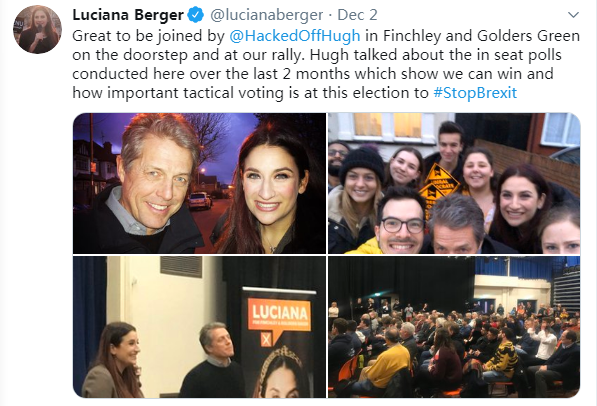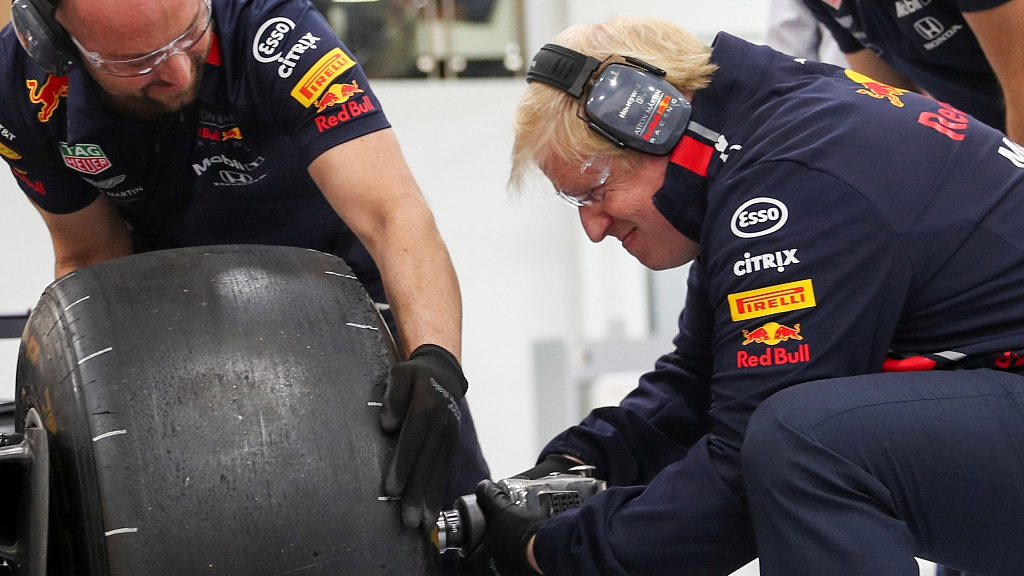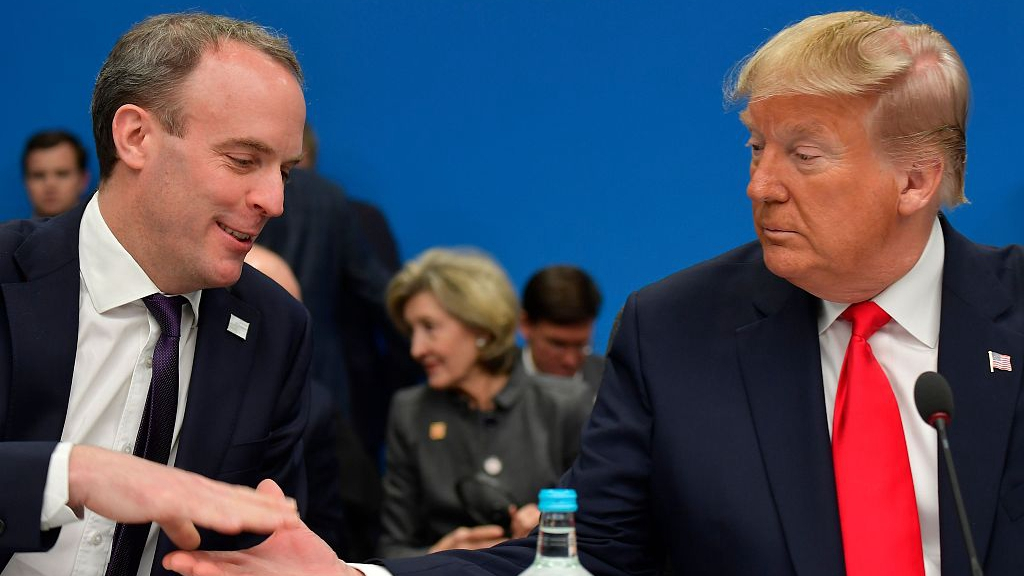The Conservatives have a healthy, if narrowing, national polling lead one week ahead of the UK election, but the vagaries of the electoral system mean the party won't be sitting too comfortably.
Election day in the UK is made up of 650 mini-contests, and with Brexit having shocked the system, the electoral map has been shaken up by a new Leave-Remain dividing line.

Tactical voting is expected to soar. New sites have emerged advising voters how to cast ballots to achieve a particular aim, while big names like actor Hugh Grant have taken to the streets to campaign with candidates from any party opposing Brexit and the Conservatives.
December 12 will be a reckoning for many MPs: The political futures of some of the most influential figures in Westminster are in jeopardy.
The leaders
With the Conservatives holding a strong national lead, both Labour and the Liberal Democrats have scaled back their ambitions, focusing on defense and core marginals – seats where the incumbent held a lead of under 10 percentage points at the previous election.

UK Prime Minister Boris Johnson changes the wheel of an F1 car during a Conservative Party general election campaign visit to Red Bull Racing in Milton Keynes, December 4, 2019. /VCG Photo
UK Prime Minister Boris Johnson changes the wheel of an F1 car during a Conservative Party general election campaign visit to Red Bull Racing in Milton Keynes, December 4, 2019. /VCG Photo
Talk of Prime Minister Boris Johnson – the ultimate scalp – losing his seat has died down, though a tactical effort to overturn the Conservative leader's 5,034-majority (10.8 points) continues in his Uxbridge and South Ruislip seat.
Labour leader Jeremy Corbyn has a huge majority in his London constituency, and despite the Libs Dems topping the polls in his Islington North constituency in May's European Parliament elections, he is unlikely to be troubled.
The leader at biggest risk is Jo Swinson, the Lib Dem who lost her East Dunbartonshire seat in 2015 and won it back in 2017 with a 10.3-point lead – she is under pressure from the Scottish Nationalists (SNP).

Liberal Democrat leader Jo Swinson visits the Ashoka Indian restaurant in Glasgow, Scotland, November 27, 2019. /VCG Photo
Liberal Democrat leader Jo Swinson visits the Ashoka Indian restaurant in Glasgow, Scotland, November 27, 2019. /VCG Photo
Neither Brexit Party leader Nigel Farage nor SNP leader Nicola Sturgeon is standing for the Westminster parliament.
The high-fliers
Established politicians from the lower rungs of government could be waving goodbye to Westminster. Several of those under pressure, such as Foreign Secretary Dominic Raab, are leading voices in the pro-Brexit camp standing in constituencies which voted to Remain in the EU.
Raab, despite a huge majority of 23,298 (nearly 40 points) in his Esher and Walton constituency, is in a tight race with the Liberal Democrats. Recent DeltaPoll and YouGov surveys put him clear of his rival, but also indicate Labour voters are switching to the Lib Dems in a bid to oust him.

UK Foreign Secretary Dominic Raab shakes hands with U.S. President Donald Trump at the NATO summit in Watford, December 4, 2019. /VCG Photo
UK Foreign Secretary Dominic Raab shakes hands with U.S. President Donald Trump at the NATO summit in Watford, December 4, 2019. /VCG Photo
Cabinet members such as Theresa Villiers and Alok Sharma are also in close races, while former Conservative leader Iain Duncan Smith, leading Brexiteer Steve Baker and failed London mayor candidate Zac Goldsmith could lose their seats.
Labour grandee Dennis Skinner, former government ministers like Caroline Flint and a host of lesser known members of Corbyn's top team are also in danger.
The independents
In the course of the past parliament, tens of high-profile MPs broke away or were culled from their parties. While numerous longstanding MPs decided not to contest the election, others opted to fight on – as independents or under a new party banner.
According to the recent YouGov MRP poll, all the big-name independent candidates are likely to lose their seats: That includes Dominic Grieve, the former attorney–general who played a central role in frustrating the Brexit plans of both Theresa May and Johnson.
Other household name MPs who switched parties – such as Chuka Umunna and Luciana Berger, who both quit Labour and eventually signed on with the Lib Dems – will be closely watched. Polling suggests a victory for Umunna in the City of London is unlikely, but Berger has a chance of overturning a small Conservative majority in north London.
Well-known independents such as David Gauke, Anna Soubry and Frank Field are expected to lose, with the YouGov model putting only one independent – Claire Wright in East Devon – in with a good chance of winning a seat.